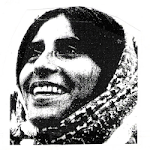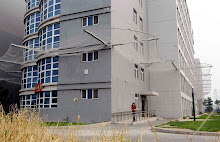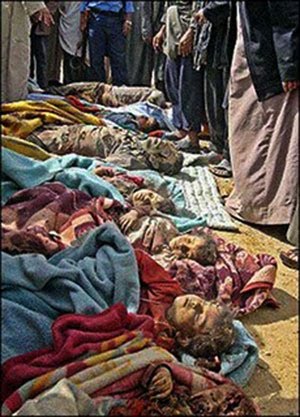Al Jazeera
The decision is part of a new election law approved by the country's ruling generals.
Egypt's council of military rulers will not allow international monitors to observe upcoming parliamentary elections, a council member has said.
Maj. Gen. Mamdouh Shaheen, who presented the new election law to reporters on Wednesday, said barring foreign monitors was a necessary step to protect Egypt's sovereignty. "We have nothing to hide," he said, adding that "we reject anything that affects our sovereignty."
Egyptian election monitors will observe the process instead, he said.
The decision was swiftly criticised by activists, who said it raises questions about the transparency of the first elections after the toppling of Hosni Mubarak and urged the military to reconsider.
Hafez Abou Saada, a member of the National Council for Human Rights, said promises of free and fair elections from the military are not enough, and noted that barring international monitors mirrors the line adopted by Mubarak's government.
"International monitors are part of any modern elections," he said. "Many countries are watching what is happening in Egypt. This is not a very positive signal."
The new law also lowers the minimum age for candidacy for the lower house from 30 to 25, apparently to allow youth who led the 18-day uprising that toppled Mubarak to run.
Rules for the upper house remain the same: Candidates must be at least 35 years old, and a newly elected president will appoint 100 of the body's 390 members.
Shaheen said the judiciary will oversee the whole electoral process, limiting the role of the interior ministry, which many Egyptians say remains tainted by its many years as the Mubarak regime's enforcer, and was responsible for much of the rigging in previous elections.
The voting itself, which will be for the upper and lower houses of parliament at the same time, will be spread over a month before the end of 2011, and the army will set their date by decree before the end of next month, Shaheen said.
The final election law has also brushed aside demands by political groups that aimed to shield the electoral system against vote buying, rampant under the previous regime, and the return of former regime officials by barring individual candidates.
Instead, the law allows for half of the 504 seats up for grabs to be contested by individual candidates instead of party lists.
New cabinet
Meanwhile, a new Egyptian cabinet is expected to be announced on Thursday. amid ongoing protests in Cairo over the supposed slow pace of reform and a fierce national debate over the future role of the military in politics.
The new cabinet had been due to take the oath of office on Monday, but the ceremony was postponed due to demonstrations at Tahrir Square over the prime minister's choice of ministers.
Essam Sharaf, who heads a caretaker government, had hoped the cabinet reshuffle would persuade protesters to end a sit-in.
But the protesters have complained that the new cabinet retains ministers they wanted sacked for their alleged links to the Hosni Mubarak, the former president.
Despite concerns over more delays, a senior military official has said the cabinet appointment will go ahead as planned.
"The new ministers in Prime Minister Essam Sharaf's government will be sworn in on Thursday in front of the head of the Supreme Council of the Armed Forces, Field Marshal Hussein Tantawi," the official told the state MENA news agency.
The government said on Tuesday that Sharaf had been admitted to hospital overnight suffering from exhaustion and would spend the day resting before finalising the new cabinet.
Fourteen new ministers and a deputy premier are expected to take the oath.
Add to Your Blogger Account
Put it On Facebook
Tweet this post
Print it from your printer
Email and a collection of other outlets
Try even more services
The decision is part of a new election law approved by the country's ruling generals.
Egypt's council of military rulers will not allow international monitors to observe upcoming parliamentary elections, a council member has said.
Maj. Gen. Mamdouh Shaheen, who presented the new election law to reporters on Wednesday, said barring foreign monitors was a necessary step to protect Egypt's sovereignty. "We have nothing to hide," he said, adding that "we reject anything that affects our sovereignty."
Egyptian election monitors will observe the process instead, he said.
The decision was swiftly criticised by activists, who said it raises questions about the transparency of the first elections after the toppling of Hosni Mubarak and urged the military to reconsider.
Hafez Abou Saada, a member of the National Council for Human Rights, said promises of free and fair elections from the military are not enough, and noted that barring international monitors mirrors the line adopted by Mubarak's government.
"International monitors are part of any modern elections," he said. "Many countries are watching what is happening in Egypt. This is not a very positive signal."
The new law also lowers the minimum age for candidacy for the lower house from 30 to 25, apparently to allow youth who led the 18-day uprising that toppled Mubarak to run.
Rules for the upper house remain the same: Candidates must be at least 35 years old, and a newly elected president will appoint 100 of the body's 390 members.
Shaheen said the judiciary will oversee the whole electoral process, limiting the role of the interior ministry, which many Egyptians say remains tainted by its many years as the Mubarak regime's enforcer, and was responsible for much of the rigging in previous elections.
The voting itself, which will be for the upper and lower houses of parliament at the same time, will be spread over a month before the end of 2011, and the army will set their date by decree before the end of next month, Shaheen said.
The final election law has also brushed aside demands by political groups that aimed to shield the electoral system against vote buying, rampant under the previous regime, and the return of former regime officials by barring individual candidates.
Instead, the law allows for half of the 504 seats up for grabs to be contested by individual candidates instead of party lists.
New cabinet
Meanwhile, a new Egyptian cabinet is expected to be announced on Thursday. amid ongoing protests in Cairo over the supposed slow pace of reform and a fierce national debate over the future role of the military in politics.
The new cabinet had been due to take the oath of office on Monday, but the ceremony was postponed due to demonstrations at Tahrir Square over the prime minister's choice of ministers.
Essam Sharaf, who heads a caretaker government, had hoped the cabinet reshuffle would persuade protesters to end a sit-in.
But the protesters have complained that the new cabinet retains ministers they wanted sacked for their alleged links to the Hosni Mubarak, the former president.
Despite concerns over more delays, a senior military official has said the cabinet appointment will go ahead as planned.
"The new ministers in Prime Minister Essam Sharaf's government will be sworn in on Thursday in front of the head of the Supreme Council of the Armed Forces, Field Marshal Hussein Tantawi," the official told the state MENA news agency.
The government said on Tuesday that Sharaf had been admitted to hospital overnight suffering from exhaustion and would spend the day resting before finalising the new cabinet.
Fourteen new ministers and a deputy premier are expected to take the oath.
Help Us Transmit This Story
Add to Your Blogger Account
Put it On Facebook
Tweet this post
Print it from your printer
Email and a collection of other outlets
Try even more services































No comments:
Post a Comment